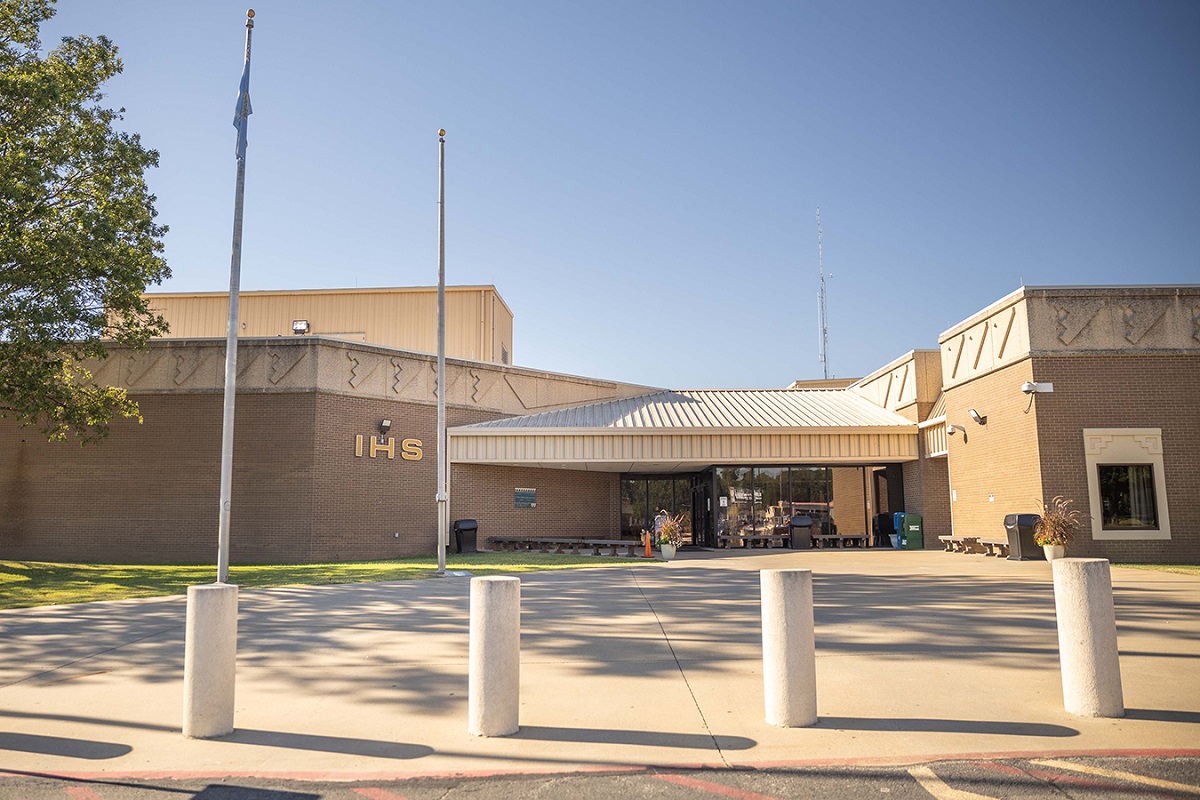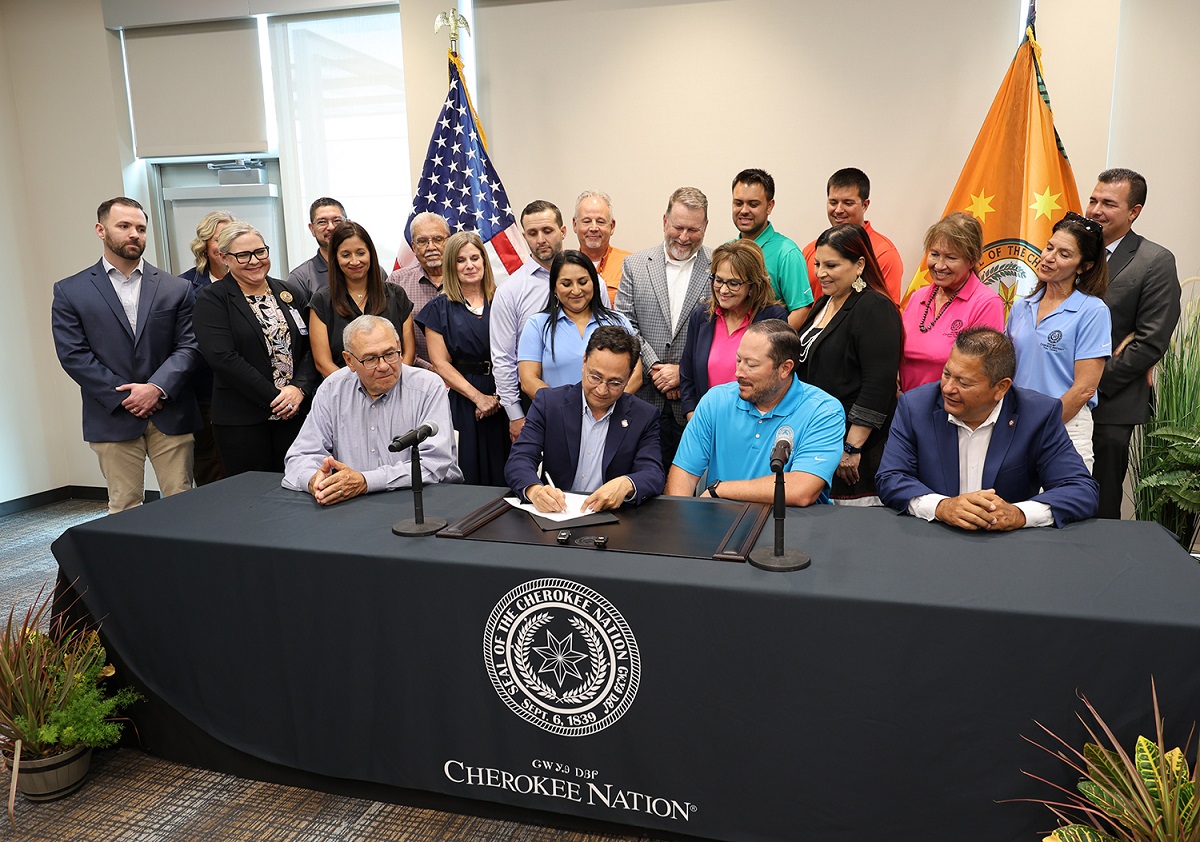TAHLEQUAH, Okla. – Cherokee Nation Principal Chief Chuck Hoskin Jr. signed a Council resolution Tuesday supporting compact discussions with Indian Health Service over the tribe’s effort to assume operations of Claremore Indian Hospital by late 2025.
The resolution supporting compacting of the facility comes on the heels of the August 31 State of the Nation address in which Chief Hoskin and Deputy Chief Bryan Warner called for the tribe to take ownership and control of Claremore Indian Hospital by the end of 2025.
Following Tuesday’s signing held in Tahlequah, Cherokee Nation issued a formal letter to IHS to begin the compact discussions.
“Claremore Indian Hospital has provided a great deal of quality health care to countless Cherokee families and to citizens of many tribal nations for decades. The hospital, however, is in a system that is not superior to the Cherokee Nation Health Services system. They are laboring under a lack of adequate funding, whether it’s on the infrastructure side or the operations side,” Chief Hoskin said. “I believe Claremore will be a facility that achieves even greater excellence through a compacting agreement that would provide Cherokee Nation the opportunity to assume operations of the facility. We plan to begin this process by examining every facet of that facility to determine whether it is something our health system should take on, and I believe it is. We have the capacity to do it, I believe we can run health care better, and our system is already raising the bar every day for health care in Indian Country.”
Chief Hoskin and Deputy Chief Warner said the Cherokee Nation will host town hall-style meetings with the Claremore Indian Hospital workforce in the future to discuss the compacting efforts, and will continue to provide updates to the public as the discussions progress.
The federal government has operated the inpatient and outpatient Claremore Service Unit, commonly known as the Claremore Indian Hospital, since 1930. Indian Health Service, an agency of the United States Department of Health and Human Services, serves all citizens of federally recognized tribes at the facility.
Cherokee Nation operates the largest tribal health care system in Indian Country, which handles approximately 2 million patient visits per year across nine health centers, W.W. Hastings Hospital, a youth drug and alcohol treatment center and employee health center.

The tribe is also in the midst of a massive expansion of its health system, building a $450 million new hospital in Tahlequah to replace the W.W. Hastings Hospital and double its patient capacity, an $85 million outpatient facility in Salina to replace the outpatient health clinic and triple capacity there, a $25 million adult drug treatment facility in Tahlequah, and multi-million-dollar wellness centers in Stilwell and Tahlequah.
“The Cherokee Nation has a track record of providing health care that sets the standard for other health care systems not just in Indian Country, but across the country. Our system is well established and we want to bring that high standard to Claremore,” said Deputy Chief Warner. “We continually strive for excellence, from facilities to workforce support and development, to our main focus of putting patients first. This is the beginning of a process that could have generational impact on Cherokee citizens, and I’m proud that we have officially begun the discussions with IHS.”
Council Speaker Mike Shambaugh praised the compact discussions.
“We know from the past that the Cherokee Nation takes care of its people, and we will do a good job with Claremore Indian Hospital,” Speaker Shambaugh said. “This is a wise way to begin the process of compact discussions with IHS, and I think this is going to be a great thing for the Cherokee people in the end.”
Chief Hoskin and Deputy Chief Warner are assembling a team of health leadership to meet with IHS officials and discuss the tribe’s effort for taking over operations of the Claremore Indian Hospital.
In 2008 the Cherokee Nation assumed operations and management of the W.W. Hastings Hospital in Tahlequah, which had opened as an Indian Health Service hospital in 1936, through a similar compacting process with IHS.

